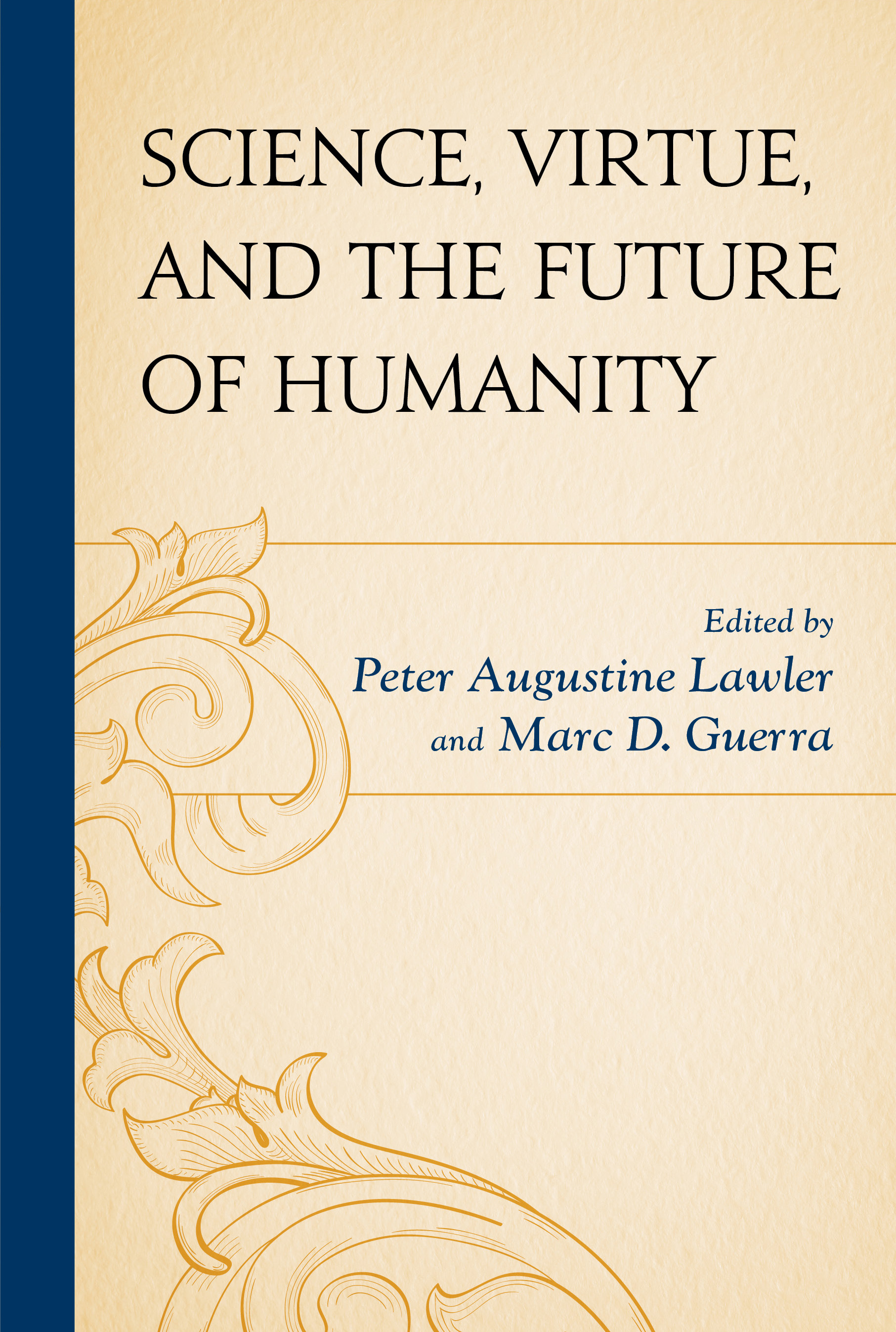Science, Virtue, and the Future
of Humanity
Science, Virtue, and the Future
of Humanity
Peter Augustine Lawler and Marc D. Guerra
LEXINGTON BOOKS
Lanham Boulder New York London
Published by Lexington Books
An imprint of The Rowman & Littlefield Publishing Group, Inc.
4501 Forbes Boulevard, Suite 200, Lanham, Maryland 20706
www.rowman.com
Unit A, Whitacre Mews, 26-34 Stannary Street, London SE11 4AB
Copyright 2015 by Lexington Books
All rights reserved. No part of this book may be reproduced in any form or by any electronic or mechanical means, including information storage and retrieval systems, without written permission from the publisher, except by a reviewer who may quote passages in a review.
British Library Cataloguing in Publication Information Available
Library of Congress Cataloging-in-Publication Data
Library of Congress Cataloging-in-Publication Data Available
ISBN 978-0-7391-8649-7 (cloth : alk. paper) -- ISBN 978-0-7391-8650-3 (electronic)
 TM The paper used in this publication meets the minimum requirements of American National Standard for Information Sciences Permanence of Paper for Printed Library Materials, ANSI/NISO Z39.48-1992.
TM The paper used in this publication meets the minimum requirements of American National Standard for Information Sciences Permanence of Paper for Printed Library Materials, ANSI/NISO Z39.48-1992.
Printed in the United States of America
Acknowledgments
This book is part of the Stuck with Virtue project directed by Peter Lawler and Marc Guerra and generously funded by the Templeton Foundation. Most of the chapters were presented in earlier forms at an April, 2011 conference at Berry College. The chapters by Bailey, Deneen, Keiper and Schulman, Kraynak, and Rubin were first published in The New Atlantis and are reprinted by permission. Were grateful to everyone, beginning, of course, with the people at Templeton and the students and administration at Berry College, that made the Stuck with Virtue Project and this book possible. We also want to thank Adam Keiper, Kate Agnew, and Stephanie Tomys for their indispensable editorial support. Thanks are due to Justin Race and Brian Hill of Lexington Books. We are also grateful to our projects scrupulous manuscript editor, Gabrielle Maher. Two Berry College StudentsNathan Womack and Daniel Boddiedeployed their formidable editing and indexing skills when this book was in proof form. And our gratitude to them is last but not least.
Observations on American Liberty
Peter Augustine Lawler
My Report from the Front
Thinking about the future of American liberty is confusing. Theres reason to be anxious and reason to hope. The truth is the more techno-control we have over ourselves and our environment, the more contingent or insecure we feel. The more were able to be responsibly attentive to the various risk factors that threaten to extinguish ones very being, the more time we spend being both hopeful and anxious about the future. We used to think that only the good die young; now were increasingly convinced that its only the stupid and self-indulgent. We worry about climate change more than ever, precisely because we believe we can do more about it. The natural condition of the climate, after all, is to change, sometimes quite unpredictably and destructively. Reliable climate stability would be quite a formidable human invention. Our personal beings, to tell the truth, are more secure than ever, even as each of us is more attuned to the fact that the environmentbeginning with our bodiesis out to extinguish our very being.
So its natural that in a time of unprecedented human freedom thered be a deepened longing for a security that would free us from worry. Some today believe in an impending Singularity that would allow us to morph from beings born to die into a kind of conscious immortality that we used to believe was reserved only for mythical gods (in some ways like the kind of robots in the service of the End of Humanity that Charles Rubin discusses in his contribution to this volume). Still others work to lose themselves in the pantheistic reveries of various post-Christian religions of pure inwardness, various forms of Western Buddhism, or Buddhism without the intense personal discipline required for genuine self-negation. Some aim for realothers for emotionaldivinization. Some long to be gods, others for a kind of regression into the womb that is pantheism. Transhumanists and other techno-enthusiastic autonomy boosters (see Ronald Baileys chapter below) tell us were finally in charge of our destiny, while neuroscientists and other determinists deny that theres any such thing as personal freedom at all.
Libertarians complain that America is quickly dropping on various indices of human freedom, thanks to our progressive president. Americans, they say, are becoming more envious and more inclined to surrender personal responsibility for government-mandated security. The work ethic, Charles Murray claims, is disappearing among ordinary Americans, and others note more pointedly that its disappearing among increasingly under-performing and even increasingly superfluous American men. Our increasingly pathological families cause single moms to reach out to government to do what reliable dads used to do. We are, some say, now more than ever on the road to serfdom described by Hayek and Tocqueville.
It is true that by some objective measures liberty in America is declining. But its hardly the case that the members of the middle classpeople who run small businesses, do skilled manual labor, and make up middle managementfeel more secure. The various safety nets that used to cushion employees from market competition are eroding. Unions and various forms of tenure are toast, as are employer and employee loyalty, pensions, and, for ordinary jobs, benefits. Im perfectly willing to admit that unions dont and shouldnt have much of a future. They constrain employee liberty and cut into employer profits. I have to add, however, that unions were responsible for raising many skilled laborers into the middle class with secure jobs that had family wages and excellent benefits. Who wouldnt be, to some extent, nostalgic for a time when American businesses, lacking much effective competition from the rest of the world, could partner with labor to create such a decently middle-class way of life in our country? That nostalgia isnt progressive but reactionary, but we conservatives always wish that libertarians could take a moment to learn something from it. Conservatives and libertarians really do have a different perspective here: Our libertarians or at least libertarian economists focus almost exclusively on the injustice and counterproductivity of constraints on the freedom of entrepreneurs, job creators, and such. Conservatives, on the other hand, often begin their thought by thinking about the complex interplay between political and economic liberty and the relational life of creatures and citizens.
The real reason why there has been progress on the state level toward right-to-work laws, funded lavishly by extremely rich Americans, is that workers sadly perceive that unions can no longer deliver what they once could. That was the reason for the recent vote against unionization at the VW plant in Chattanooga. Its simply true that the global competitive marketplace has made unionization unsustainable, but thats not good news for the conditions of and compensation for work. It means it will be harder for people working in plantseven doing very skilled laborto be comfortably middle class. Libertarians say, quite rightly, that the demands of unions have cost America jobs, but that doesnt mean that the jobs are actually going to come back now. There is, after all, a loose correlation between the decline and fall of the union and the rise of the jobless recovery.
Next page

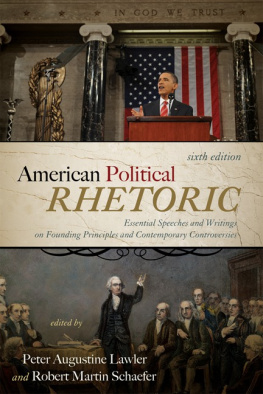
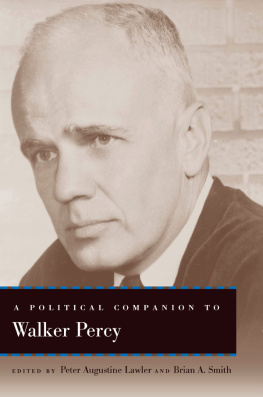
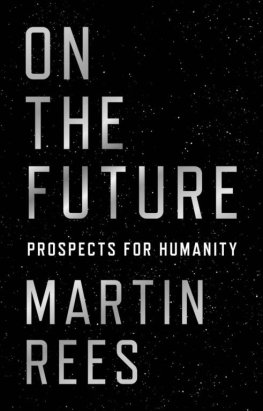

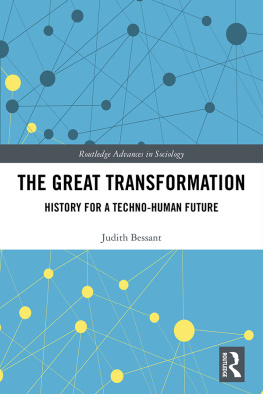
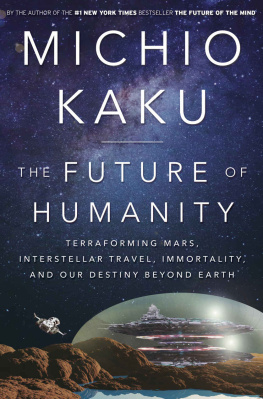
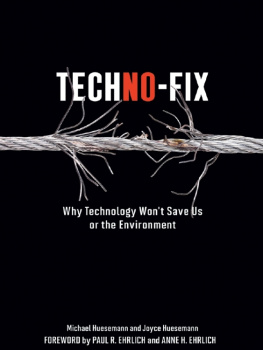
 TM The paper used in this publication meets the minimum requirements of American National Standard for Information Sciences Permanence of Paper for Printed Library Materials, ANSI/NISO Z39.48-1992.
TM The paper used in this publication meets the minimum requirements of American National Standard for Information Sciences Permanence of Paper for Printed Library Materials, ANSI/NISO Z39.48-1992.